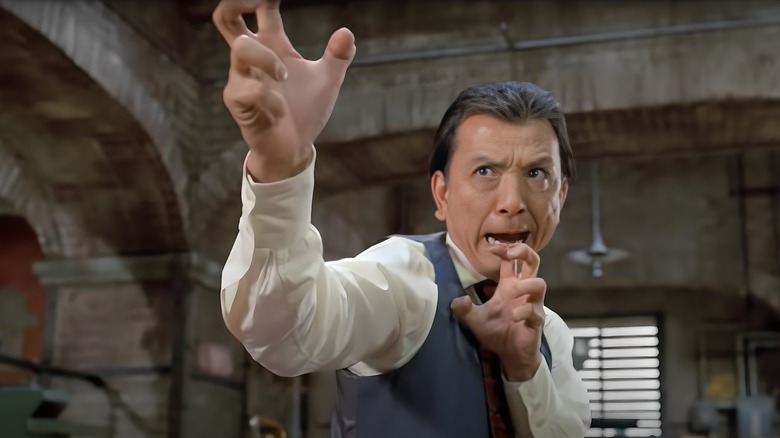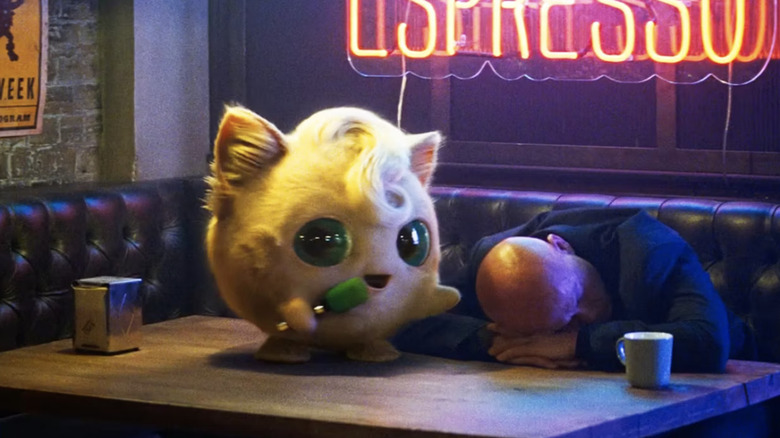A.I. Company Wants To Visually 'Dub' Non-English Film Actors' Faces And We Have Questions
Artificial intelligence is continuing to advance at a rapid pace that is honestly getting a little bit terrifying, depending on how often you allow the ethical conundrums that A.I. brings to infect your mind. A.I. and automation are impacting just about every industry known to humanity, but the ways it has impacted (or has the potential to impact) the entertainment space is at the heart of a number of labor rights movements, including the ongoing Writers Guild of America strike. We've previously written extensively about the ways the voiceover industry is already preparing for the potential future of the industry as A.I. gets smarter and faster, but according to an exclusive report from Deadline, things are about to get even more complicated.
Last year the generative A.I. firm Flawless made headlines when they successfully modified the faces of the actors in the survivalist thriller "Fall" to change the dialogue that was originally shot in the R-rated film, in order to garner a PG-13 rating. The company announced that it will be partnering with XYZ Films and Tea Shop Productions to acquire non-English speaking films and, using the technology to match the actors' faces to an English dub and release the films in English-speaking territories.
The goal is not to eliminate subtitles or out-of-sync dubs, but to provide an additional, accessible avenue for movie watching experience. Flawless told Deadline that the company "proactively developed relationships with industry unions and guilds, working together to develop tools that empower them while protecting their rights and interests." For what it's worth, company co-founder Scott Mann is a WGA and DGA member, and both XYZ Films and Tea Shop Productions have a history of supporting inventive, low-budget films.
But we still have a few concerns...
Don't fear the one-inch tall barrier
Sure, some dubs are hilariously bad, but changing the faces of actors to deliver lines that they themselves never actually spoke opens up an entire stock shelf full of cans of worms, especially when factoring in cultural localizations. For example, the popular Pokémon we know in English-speaking countries as "Jigglypuff" is "Purin (プリン)" in Japan. Jigglypuff's name is the result of localization because otherwise the direct translation would mean "Custard Pudding" — or, if we go with the onomatopoeia sound of "Puripuri (ぷりぷり)," the character name becomes "Angrily, in a Huff." Localization happens when a direct translation would be awkward or culturally irrelevant, but a seamless dub would make it impossible for audiences to recognize that they're listening to a dub, and not the original script.
This is a harmless example, but if actors aren't able to negotiate complete control over the English translations of their lines, this could lead to their faces being used to deliver lines or phrases that they wouldn't have agreed to say otherwise. Their voices may not be the ones actually saying the words, but to a viewer looking at the screen, it wouldn't really make a difference who made the decision: it will still look like a line delivered by an actor.
The company statements mentioned more than once that this tech is going to be used to help international films find a global audience, and while this is a good thing, it's also highlighting how pathetic English-speaking viewers are that there is still a fight against what Bong Joon-ho famously called "the one-inch barrier of subtitles." Translating and localizing also lose the cultural specificity of the art, like how the English subtitles of "Squid Game" changed important storytelling elements in the translation process.
Only panicking a little bit
I want to make it explicitly clear that I do not think Flawless, XYZ Films, or Tea Shop Productions have any nefarious intent behind what they're doing. According to Deadline, SAG-AFTRA national executive director and chief negotiator Duncan Crabtree-Ireland recently called the tech a "more authentic translation product" compared to the standard dubbing practice, and views this as a means to free up actors from having to show up for reshoots and can thereby take on more projects.
I feel similarly, cautiously optimistic about Metaphysic, the company Robert Zemeckis is utilizing for his upcoming Tom Hanks film, "Here," because the company is also currently trying to find ways to close the easily-abused loopholes for likeness rights. In a joint statement to Deadline, Flawless Co-CEOs and Founders Scott Mann and Nick Lynes said: "There is an abundance of world-class cinema yet to be unlocked, and we are thrilled to be able to leverage our technology, as well as XYZ and Tea Shop's sterling track records with top-quality films and filmmakers, to help these titles reach the global audiences they deserve." It certainly sounds like their focus is in the right place, but I'll be honest in admitting my apprehension.
It's mildly relieving to know that there are those working in the industry that are also trying to ensure that A.I. is used as a tool and not a replacement. But I am also fearful because I know that there are plenty of folks out there who do not have the best intentions at heart and absolutely would gut out the entire industry from the inside out if it meant their pockets would get a little deeper.
The future is now, and it's our job to figure out what to do with it.


